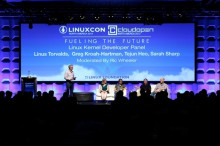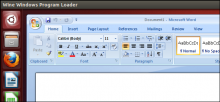Are We Witnessing the Decline of Ubuntu?
History is written years after the events it describes. But when the history of free software finally is written, I am increasingly convinced that this last year will be noted as the start of the decline of Ubuntu.
At first, the idea might seem ridiculous or spiteful. You can still find Ubuntu enthusiasts who exclaim over every move the distribution makes, and journalists still report founder Mark Shuttleworth's every word uncritically.











































































